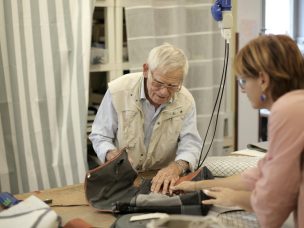A reminiscence therapy-based care program reduces anxiety and depression and enhances life quality in surgical prostate cancer patients.
Prostate cancer, characterized by dysuria, urinary leakage, and erectile dysfunction, is the second-most frequent cancer in men worldwide, with estimations of more than 1.4 million new cases and 375,000 new deaths reported in 2020.
According to reports, reminiscence therapy improves psychological conditions in cancer patients, such as colorectal and lung cancer patients. However, there are few relevant reports on surgical prostate cancer patients.
This randomized controlled study, published in International Urology and Nephrology, aimed to evaluate the influence of a reminiscence therapy-based care program (RTCP) combined with usual care (UC) on anxiety, depression, quality of life, and the survival of surgical prostate cancer patients who received surgical resection.
Participants of the study included 108 prostate cancer patients undergoing surgical resection, who were then randomly assigned to the RTCP + UC group (N = 55) or the usual care (UC) group (N = 53) in a 1:1 ratio. During the intervention period, the Hospital Anxiety and Depression Scale (HADS) and QLQ-C30 were measured at month (M) 0, 3, 6, 9, and 12. After the intervention, patients were followed for an additional 24 months to determine disease-free survival (DFS) and overall survival (OS).
It was found that RTCP + UC decreased the HADS-anxiety scores at M9 and M12, decreased HADS-depression scores at M6, M9, and M12, and decreased depression rate and severity at M12 but had no effect on these variables at other periods. RTCP + UC improved the QLQ-C30 global health status score at M3, M6, M9, and M12 but did not affect the QLQ-C30 function score or QLQ-C30 symptom score. In the meantime, RTCP + UC did not influence the cumulative DFS and OS of patients with prostate cancer who underwent surgery.
Moreover, it was also found that the effect of RTCT + UC on anxiety, depression, and quality of life was more pronounced in patients with Gleason scores equal to or greater than seven.
This study concludes that RTCP + UC is an optional nursing intervention for reducing anxiety and depression and enhancing life quality in surgical prostate cancer patients.
Reference:
Huang, T., Su, H., Zhang, S., & Huang, Y. (2022). Reminiscence therapy-based care program serves as an optional nursing modality in alleviating anxiety and depression, improving quality of life in surgical prostate cancer patients. International Urology and Nephrology, 54(10), 2467-2476. https://doi.org/10.1007/s11255-022-03282-6










